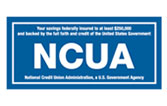Understanding Financial Wellness
Last Updated
February 2, 2024
Written By
Sarah Kearney
After the holiday season, we often tend to take a harder look at our financial landscape and spending and are encouraged to adopt healthier financial practices to achieve financial wellness.
So… What exactly is financial wellness??
Financial wellness is a term that goes beyond wealth accumulation; it is a holistic and balanced approach to managing one’s financial resources for overall well-being. At its core, financial wellness involves understanding and optimizing various aspects of your financial life to achieve a sense of security, freedom, and peace of mind. Below are the 5 key elements that contribute to achieving and maintaining financial wellness.

- Comprehensive Understanding of Finances: Financial wellness begins with a thorough understanding of your personal financial situation. This includes assessing your income, expenses, debts, and investments so you can gain clarity on your financial goals and craft a plan that aligns with those said goals. Take a look at your credit report to see where your credit score is and ensure the recorded debts are accurate. Click here to learn more about credit scores and how they affect your finances on our blog. By closely examining your financial landscape, you can make informed decisions and establish a solid financial foundation.
- Cultivating Healthy Financial Habits: Central to financial wellness is the cultivation of healthy financial habits. This includes creating and adhering to a realistic budget, distinguishing between needs and wants, and practicing disciplined saving. Building a foundation of strong financial habits provides the strength needed to navigate economic uncertainties and unforeseen challenges that may arise.
- Planning for the Future: Financial wellness is future-oriented and emphasizes the importance of setting and achieving both short-term and long-term financial goals. This includes saving for major life events, such as buying a home, starting a family, or preparing for retirement. By developing a strategic financial plan, individuals can work towards securing their financial future and enjoying a sense of financial freedom.
- Balancing Present Enjoyment and Future Security: While planning for the future is essential, financial wellness also encourages individuals to strike a balance between present enjoyment and future security. It advocates for investing in experiences that contribute to happiness and well-being, fostering a mindset that recognizes the importance of enjoying life today while responsibly planning for tomorrow.
- Seeking Continuous Improvement: Financial wellness is an ongoing journey rather than a destination. It involves a commitment to continuous improvement and adaptation to life’s changing circumstances. Regularly reassessing financial goals, adjusting strategies, and staying informed about financial trends ensures that individuals remain resilient and proactive in their pursuit of financial well-being.
To summarize, financial wellness is a comprehensive concept that extends beyond the narrow confines of monetary wealth, encompassing an understanding of one’s financial situation, the cultivation of healthy financial habits, strategic planning for the future, and a balanced approach to enjoying the present. Embracing financial wellness empowers individuals to navigate life’s financial complexities and unknowns with confidence and security.
For help achieving financial wellness and meeting your personal financial goals, schedule an appointment with one of Family First’s certified financial counselors. Our local experts are prepared to give you the guidance and resources you need to get started on your journey to financial security!
Author

Sarah graduated with her BFA in Graphic Design from the State University of New York at Fredonia in 2018 before beginning her career at Family First. Sarah is a designer, content creator, and community outreach coordinator, and is an active volunteer within the Rochester community.



